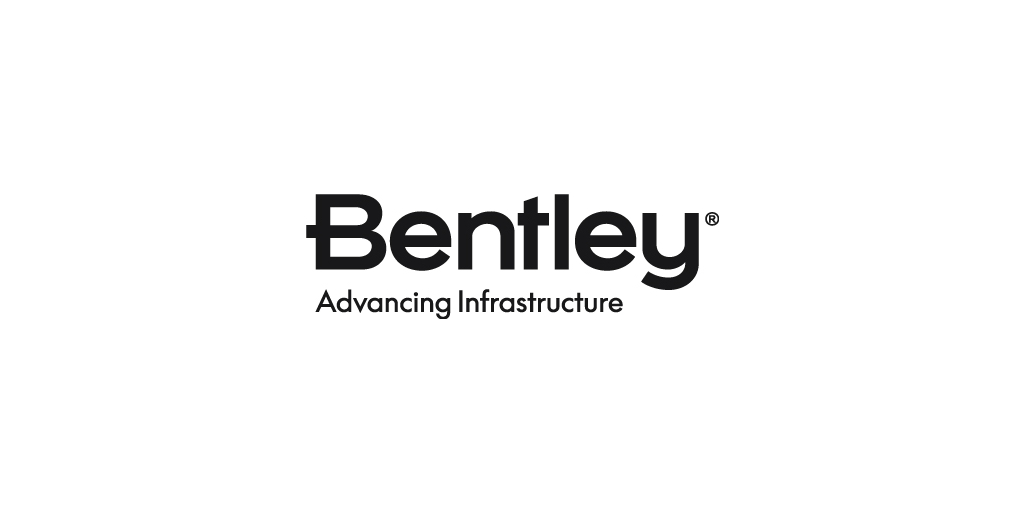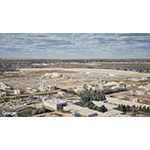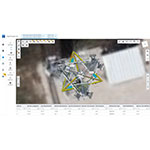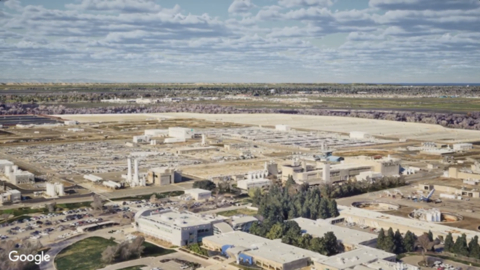 BUSINESS WIRE
BUSINESS WIRE



At its Year in Infrastructure conference, Bentley highlights the value of open data ecosystems to improve infrastructure resilience and sustainability
Bentley Systems: Open Data Ecosystems to Advance Infrastructure Engineering
For more information, contact:
Press: Chris Phillips, PR@news.bentley.com
Investors: Eric Boyer, ir@bentley.com
Bentley Systems’ Year in Infrastructure 2024 — 241009742521&lan=en-US&anchor=Bentley+Systems%2C+Incorporated&index=1&md5=772a8381d8c9a004ef517477da94cc34" shape="rect">Bentley Systems, Incorporated (Nasdaq: BSY), the infrastructure engineering software company, unveiled its vision for open data ecosystems to advance infrastructure engineering at its annual Year in Infrastructure conference. During the event, Bentley executives were joined by representatives from global engineering and construction firms and infrastructure owner-operators to discuss how infrastructure professionals can improve project delivery and asset performance.
This press release features multimedia. View the full release here: https://ww

w.businesswire.com/news/home/20241009742521/en/

Example of an open data ecosystem enabled by iTwin to allow users access to Photorealistic Google 3D Tiles, based on Cesium technology. (Photo: Bentley Systems)
“The future of infrastructure engineering is open,” said Bentley CEO Nicholas Cumins during his keynote address. “It’s flexible, collaborative, and built on a foundation of data that can be shared securely. At Bentley, we are leading the way—ensuring that the applications, platforms, and solutions we create meet the evolving needs of our industry.”
Cumins explained that infrastructure sectors can no longer afford to work in silos, with data locked away in proprietary systems. The secure flow of data is necessary to solve global infrastructure challenges, including the expansion of energy grids, modernization of transportation systems, and retrofitting of existing assets to meet sustainable development goals.
Open data ecosystems
Because infrastructure projects are complex, involving multiple organizations, teams, disciplines, and stakeholders, infrastructure organizations need an open ecosystem for their data that enables integration and interoperability across different tools and platforms.
In addition to its Bentley Open Applications for infrastructure modeling and simulation, which allow users to edit models from other vendors, Bentley has developed over the last decade a robust, open-source schema specifically for infrastructure. Bentley’s Base Infrastructure Schema structures and organizes data so that it can be queried, analyzed, and reused across multiple platforms, enabling infrastructure professionals and organizations to fully leverage the value of their data.
“At Bentley, we understand that openness is not just a feature—it’s a necessity,” Cumins said. “This is about moving the entire sector forward together. We’ve spent years refining this framework so that organizations don’t have to start from scratch, and we welcome others to benefit from its maturity and richness.”
Enhancing geospatial capabilities
The value of open data ecosystems is demonstrated through Bentley’s partnership with Google, announced at the Year in Infrastructure. The partnership integrates Google’s breadth and depth of geospatial data with Bentley’s infrastructure engineering software.
“When this data is combined with Bentley’s infrastructure engineering expertise, the result is an ecosystem where data can flow seamlessly, providing users with access to the most comprehensive and actionable geospatial insights available,” Cumins said.
The partnership builds on Bentley’s recent acquisition of Cesium, the foundational open platform for creating powerful 3D geospatial applications. Cesium is the creator of the 3D Tiles open standard also used by Google. By integrating 3D geospatial data with Cesium and Bentley’s iTwin platform, stakeholders can visualize their assets, both existing and planned, in full, real-world context.
This technology has been put to use on HS2, the high-speed railway under construction in the UK. To support communities and stakeholders, BBV (the Balfour Beatty Vinci Joint Venture) developed an in-house application utilizing Bentley’s iTwin Platform for infrastructure digital twins, which allows simultaneous streaming of multiple engineering models. Users can quickly navigate to any asset, generate imagery, and view flythrough videos. With Cesium, Google 3D Tiles are used to provide geospatial context to aid navigation and enhance the digital twin.
AI is a paradigm shift
Open data ecosystems make data accessible, including for AI, which Cumins called a “paradigm shift” for infrastructure sectors, which create massive amounts of data during design, construction, and operations. By applying AI, infrastructure data can be analyzed for deeper insights.
For example, Bentley’s digital twin solutions apply AI to improve infrastructure operations, allowing engineers to monitor, manage, and optimize assets. AI agents analyze digital twins to identify maintenance issues and recommend preventive action, avoiding costly breakdowns or safety hazards.
Cumins explained that AI’s potential extends even further, into the design phase of the infrastructure lifecycle. Infrastructure organizations can leverage AI and reuse their data to automate repetitive tasks, such as documentation and annotation, enabling engineers to focus on higher-value activities. At the Year in Infrastructure conference, Bentley announced OpenSite+, a new engineering application for civil site design that features generative AI capabilities, including a design copilot that will drive new levels of productivity and accuracy.
“At the end of the day, AI’s true power will be measured by its ability to improve outcomes—more sustainable designs, faster and safer builds, and more reliable infrastructure systems. As we look to the future, the possibilities seem endless,” Cumins said.
Bentley Asset Analytics
Open data and AI can come together to enhance asset performance. Because more than 95% of the infrastructure that will be in use by 2030 already exists today, owner-operators need to ensure existing infrastructure is resilient, efficient, and capable of meeting current and future demands.
To address this challenge, Cumins announced Bentley Asset Analytics, a new product portfolio that combines existing products and solutions with new innovations and recent acquisitions. Bentley Asset Analytics leverages AI to generate insights into the condition of existing infrastructure assets, while eliminating costly, manual activities.
The portfolio includes Blyncsy, which automates roadway maintenance and asset inventory activities through crowd-sourced imagery and AI, and OpenTower iQ, which automates every stage of the telecommunications tower lifecycle through drone-capture imagery, other data sources, and AI. Bentley plans to cover a wide range of asset classes and incorporate diverse data capture techniques, such as IoT sensors and drones, to create solutions for owner-operators.
“We extend an invitation to engineering firms to partner with us on this. We want to empower engineering firms to extend their expertise into asset operations, and we know that delivering on the promise of AI-driven asset analytics requires close collaboration,” Cumins said.
Looking Ahead
The Year in Infrastructure conference followed Bentley’s recent celebration of its 40th anniversary in September. Cumins used the occasion to reflect on the opportunities for infrastructure engineering over the next decades.
“The key to moving forward, to harnessing the paradigm shifts of the next 40 years, is to unlock the value of data. So, don’t get locked in. Make sure you retain control,” Cumins said. “Let’s use AI—our generation’s paradigm shift—to improve outcomes for the built and natural environment.”
“Together, we’re laying the groundwork for a future where open data ecosystems and AI work seamlessly to create more sustainable and resilient infrastructure—for better quality of life—for generations to come.”
# # #
About Bentley Systems
Bentley Systems (Nasdaq: BSY) is the infrastructure engineering software company. We provide innovative software to advance the world’s infrastructure – sustaining both the global economy and environment. Our industry-leading software solutions are used by professionals, and organizations of every size, for the design, construction, and operations of roads and bridges, rail and transit, water and wastewater, public works and utilities, buildings and campuses, mining, and industrial facilities. Our offerings, powered by the iTwin Platform for infrastructure digital twins, include MicroStation and Bentley Open applications for modeling and simulation, Seequent’s software for geoprofessionals, and Bentley Infrastructure Cloud encompassing ProjectWise for project delivery, SYNCHRO for construction management, and AssetWise for asset operations. Bentley Systems’ 5,200 colleagues generate annual revenues of more than $1 billion in 194 countries.
© 2024 Bentley Systems, Incorporated. Bentley, the Bentley logo, Bentley iTwin, Bentley Open, Blyncsy, OpenSite, OpenTower, are either registered or unregistered trademarks or service marks of Bentley Systems, Incorporated or one of its direct or indirect wholly owned subsidiaries.
View source version on businesswire.com: https://www.businesswire.com/news/home/20241009742521/en/


